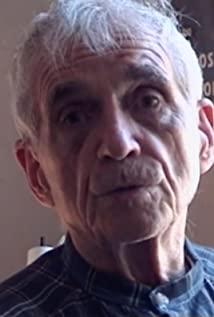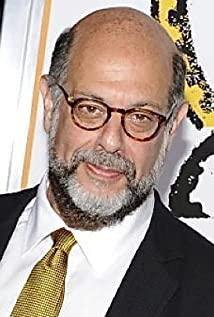In the 16th century, Spain and Portugal began to colonize the Americas. According to our official historiography, the Catholic Church played the roles of "running dogs" and "pawns", and colonists and churches "colluded and exploited each other." This view of history seems quite incomplete today. It can be said that many of the disgrace in the history of the church is the result of survival under the squeeze of the secular kings. For example, the inquisition in Spain is particularly cruel because of the backlash caused by Spain’s long-term Islamic rule; France’s opposition to Hugues The persecution of the Nords was also planned by the king to establish a dual image protected by personal authority and belief; the banning and persecution of the Knights Templar was entirely because the king of France coveted the property of the Knights. You must know that the medieval church lacked the power to punish in legal theory, and the most serious sanctions could only be excommunication, in the vernacular it is expulsion. The power of the sword of theocracy in the hands of the church is quite limited. To achieve certain goals, it really needs to ask for the sword of the monarchy of the secular ruler, and the ruler needs the church to obtain political legitimacy, so there will definitely be a deal between the two parties. It is precisely because of these lessons that we can realize the value of separation between church and state today. People often see the disaster caused by the cooperation between the two, but they don't see the space left by the lasting tension of the two swords for freedom. (For the above, please refer to Peng Xiaoyu's "Canon Law Study")
As to why the mission of the Jesuits in the Americas did not conform to the impression of official historiography, we can analyze the core interests of the church and the colonists. The purpose of the church is to increase the number of believers, but there is a very important but often overlooked premise, that is, once preaching to the natives, it is equivalent to treating them as Europeans; and the colonists are concerned about it. Practical interests, they don't mind treating the natives as second-class citizens or even property. In this reality, the indigenous people were facing the risk of being enslaved, and they naturally fell to the Jesuits. Therefore, the Jesuits established many "reserved areas" independently of the colony. The establishment of the reserved areas was originally a secular ruler. For ease of management, when the Jesuits established it in accordance with the theological concept of the Christian community in the apostolic era, these reservations were not only politically successful, but also economically successful. Today, they look a lot like the social experiments of Fourier and Saint-Simon, but compared to the superior Europe, the success of the reservation may be more due to the harsh conditions of the outside world as slaves, and the indigenous self-sufficient lifestyle ( The Jesuits respect local customs and do not require the Europeanization of indigenous peoples).
The tension between the secular regime and the church has brought respite to the disadvantaged, but it has caused great troubles for the local colonists. To some extent, due to foreign diseases and the absolute military superiority of the colonists, the existence of the Jesuits became the only guarantee for the survival of the natives. The conflict between the reserved area and the secular rulers was so serious that war broke out (as depicted in the film), which eventually led to a joint Western multinational pressure on the Vatican and the expulsion of Jesus from the Americas.
The Jesuit has never stopped paying attention to the rights and interests of the indigenous (or more broadly speaking, the lower class) in South America. This is also the result of long-term interaction: on the one hand, they are deeply aware of the suffering of the middle and lower classes due to their long-term penetration in the front line; on the other hand, Because of their good image in the local business, many people at the bottom became Jesuits, so that they began to influence the decision-making of the top. In the 1970s, "liberation theology" gradually emerged. The original intention of this school of theology was not to promote violent revolution, but to emphasize the concern for the suffering of the bottom, and it was also the new wind brought by the Second Vatican Conference, but it gradually lost control in the development process. At that time, the criticism of the Vatican’s letter presided over by the pope hit the nail on the head: Liberation theology paid too much attention to systemic and institutional evils, while ignoring the role of individual human evils in contributing to these social tragedies-many Marxist criticisms today The depth reached by the person is no more than that.
The Jesuits emphasize social justice and have always been considered a leftist force in the Catholic Church. This role is not surprising, because Jesus himself appears in the New Testament as a nonviolent revolutionary leader. But unlike our ancestors who "ruled the world with half the Analects", the Catholic Church has always adopted the attitude of interpreting the Bible as a whole socially and historically. Although the New Testament gives people the impression of liberation, the church does not deny the majesty and cruelty of God in the Old Testament. This is partly because the church's theory treats humans as creatures and believes that God can dispose of his own works at will; partly because the church regards order and law as necessary conditions for the salvation of human spirits as well as forgiveness and sympathy ( I did not come to abolish the law, but to fulfill it). It is precisely out of the implementation of this spirit and the review of history (for example, Marxism that advocates violent revolution finally created a greater hell on earth), and of course there are practical considerations (after all, if the Catholic Church will establish itself as a revolutionary Agitators, there will be great difficulties in preaching in all secular regimes), Rome decided to suppress liberation theology. In the 1980s, the Jesuits were almost divided by liberation theology. At this time, Pope John Paul II publicly condemned the misinterpretation of Jesus by extreme liberation theology and demanded that the Jesuits swear allegiance to the Holy See. At this point, liberation theology has entered a downward path, but it is far from completely disappearing. With the improvement of South American social and economic conditions, it continues to exist in a relatively mild face and is rejuvenated. This historical process is actually very similar to the situation 200 years ago, but fortunately, there has been no resort to large-scale violence. Looking back at this period of history in the 1980s, this film can be said to have special significance.
View more about The Mission reviews











